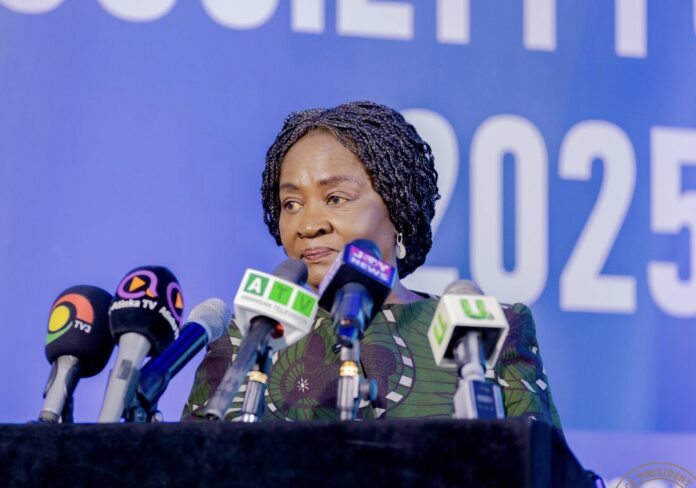Vice President Professor Naana Jane Opoku-Agyemang has advocated for a fundamental and comprehensive change in how Ghana approaches development funding and the involvement of its citizens. She urged all relevant parties to adopt a new framework built on national responsibility, shared commitment, and distributing authority more widely.
Speaking at the 3rd Ghana Civil Society Forum in Accra under the theme, “Reimagining Development Financing and Civic Action: Challenges, Opportunities, and the Way Forward,” the Vice President engaged with policymakers, development experts, and members of civil society. The aim was to consider how Ghana can pursue a path of development that is both robust and fair.
Prof. Opoku-Agyemang recognized the significant difficulties faced by those in civic roles and development partners, such as decreased funding from traditional sources, financial limitations, and increasing constraints on public expression and action.
Also Read: Defiant Chief Justice Torkornoo declares: ‘I won’t resign in the face of injustice’
“We must now reimagine our approach by moving from dependency to ownership. It is time to design a development model that is resilient, inclusive, and rooted in the aspirations of our people,” she declared.
She detailed the government’s ongoing efforts to tackle these issues, including reforms intended to broaden the tax base, improve the management of public funds, and implement new policies as part of the 2025 budget.
“We are exploring innovative financing models to supplement public funding. But more importantly, development is not just about money — it is about agency,” she emphasized.
Role of Civil Society
The Vice President stressed the vital role of civil society in the nation’s progress, commending their work in monitoring, advocating, and implementing solutions at the local level. She also pointed to the promise of Ghana’s young population, the potential offered by the African Continental Free Trade Area (AfCFTA), and the transformative influence of digital technologies.
“Our youth are not just the future — they are the now. And we must empower them with the tools, space, and opportunities to lead,” she stated.
Prof. Opoku-Agyemang called for a new agreement between the government, civil society, and the people, saying, “Inclusive development is possible when we co-invest in our collective progress. Let us embrace a future built on trust, decentralization, and the shared commitment to leave no one behind.”
The forum served as an important opportunity for civil society organizations and development partners to think about their influence on policy and their role in ensuring accountability, while also exploring new ways to achieve development that is sustainable and focused on the needs of citizens.


